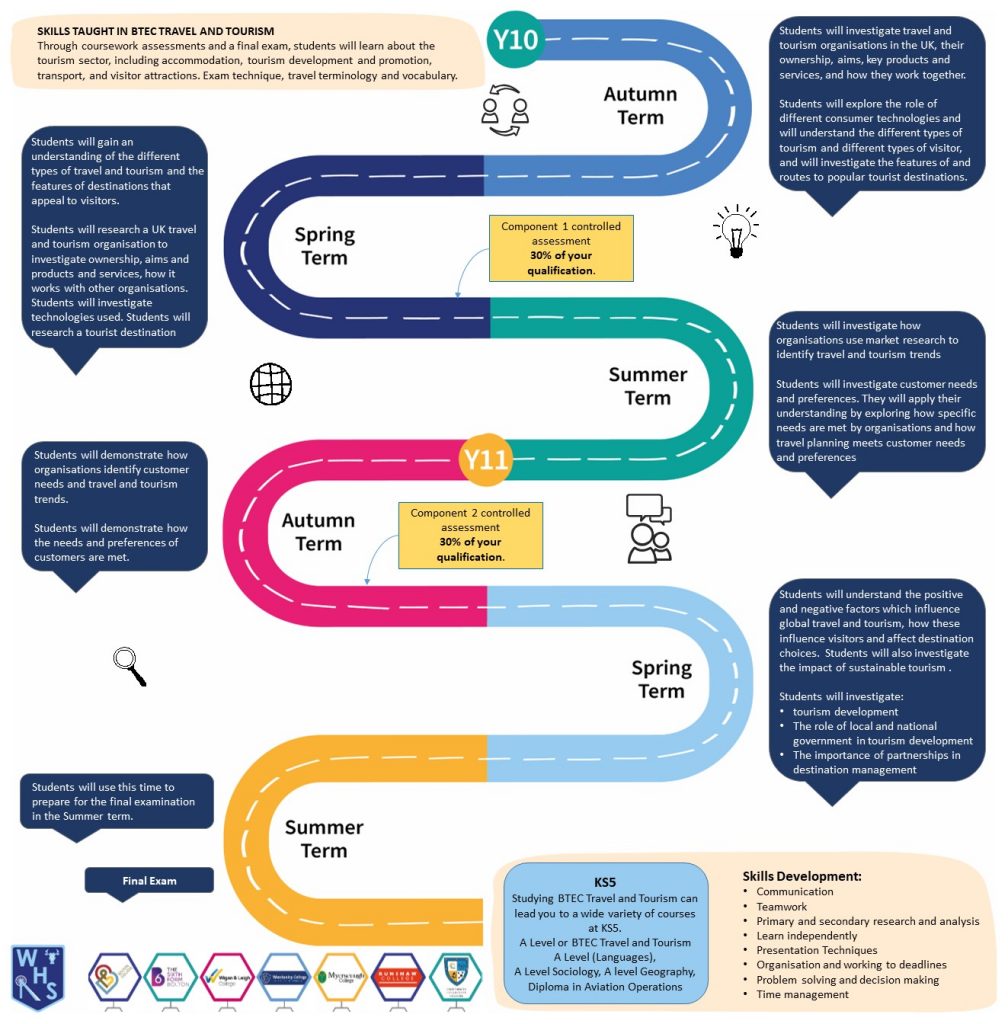Travel & Tourism
Traveling outside of the United Kingdom exposes you to a diverse range of cultures, traditions, landscapes, and experiences. There are exotic locations and bustling, dynamic cities to discover, while the beauties of the natural world fascinate travellers and provide opportunity for adventure, so why not study them? The travel and tourism industry is the UK’s third largest employer, accounting for 9.5% of total employment. Tourism is one of the UK’s fastest growing employment industries, employing about 3 million people and contributing approximately £121 billion to UK GDP. In 2016, travel and tourism contributed 10.2% of the world GDP, and the sector today employs 292 million people – that’s one in ten jobs worldwide.
In Travel and Tourism, students will explore and learn about key aspects within the industry, including: the contribution of travel and tourism to the UK economy, tourism development, trends in travel and tourism, how organisations meet customer needs, the location and appeal of different types of travel and tourism destinations, and the impact of travel and tourism on the local community, environment and economy.
Students enjoy Travel and Tourism because it exposes them to other cultures and helps them comprehend them while appreciating and respecting others’ traditions and values.
Travel and Tourism is an industry-based subject focused on looking after its customers, and we follow this ethos by looking after each other, creating a safe learning environment, understanding the benefits of equality and diversity, and instilling a desire to never stop learning; continuing to develop skills that they can use in further education and beyond. Students are encouraged to aim high on the course in order to develop industry-related abilities such as confidence, independence, and communication skills, all of which are valuable transferable qualities applicable to any business or function.
Please see parental overview of the course in KS4 below:
Links for Support/Help at Home:
- Use of student resources located within WHS SharePoint for students
- Use of online platforms such as Youtube for podcasts and revision of key content
- Use of additional homework booklets, therapy work packs and/or additional resources from the class teacher via Synergy
- Wider reading: revision guides or further research on selected tourist areas
- Wider reading: blogs and online articles/further reading on topics and studies outlined
- Teacher discussions following assessments and/or reports
- Encourage the participation in enrichment and revision workshops

